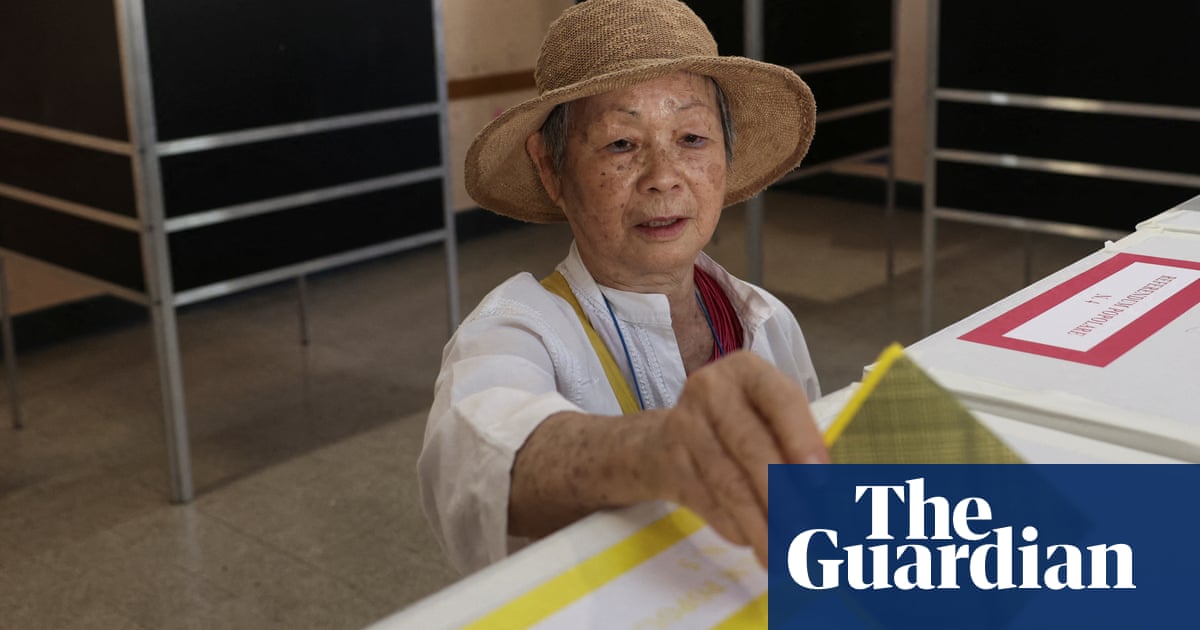Italians are voting in a referendum on whether to make it easier for children born inItalyto foreigners to obtain citizenship, with activists saying apparently low public awareness risks rendering the vote invalid if turnout is not high enough.
Campaigners for the change in the citizenship law say it will help Italians born in the country to non-European Union parents better integrate into a culture they already see as theirs.
The Italian singer Ghali, who was born in Milan to Tunisian parents, urged people to vote in an online post, noting that the referendum, held over Sunday and Monday, risks failure unless at least 50% plus one of eligible voters turn out.
“I was born here, I always lived here, but I only received citizenship at the age of 18,” Ghali said, urging a yes vote to reduce the residency requirement from 10 to five years.
The new rules, if passed, could affect about 2.5 million foreign nationals who still struggle to be recognised as citizens.
The measures were proposed by Italy’s main union and leftwing opposition parties. The prime minister, Giorgia Meloni, said she would show up at the polls but not cast a ballot, an action widely criticised by the left as antidemocratic, since it will not help reach the necessary threshold to make the vote valid. The citizenship referendum is one of several being held on issues including a move towards greater job protections.
“While some members of her ruling coalition have openly called for abstention, Meloni has opted for a more subtle approach,” said the analyst Wolfango Piccoli of the Teneo consultancy based in London. “It’s yet another example of her trademark fence-sitting.’’
Supporters say this change would bring Italy’s citizenship law in line with many other European countries, promoting greater social integration for long-term residents. It would also allow faster access to civil and political rights, such as the right to vote, eligibility for public employment and freedom of movement within the EU.
Selam Tesfaye, an activist and campaigner with the Milan-based human rights group Il Cantiere said: “The real drama is that neither people who will vote ‘yes’ nor those who intend to vote ‘no’ or abstain have an idea of what [an] ordeal children born from foreigners have to face in this country to obtain a residence permit.”
“Foreigners are also victims of blackmail, as they can’t speak up against poor working conditions, exploitation and discrimination, due to the precariousness of the permit of stay,” she added.
Activists and opposition parties also denounced the lack of public debate on the measures, accusing the governing rightwing coalition of trying to dampen interest in sensitive issues that directly affect immigrants and workers.
Sign up toThis is Europe
The most pressing stories and debates for Europeans – from identity to economics to the environment
after newsletter promotion
In May, Italy’s AGCOM communications authority lodged a complaint against RAI state television and other broadcasters for a lack of adequate and balanced coverage.
Michelle Ngonmo, a cultural entrepreneur and advocate for diversity in the fashion industry, who has lived most of her life in Italy after moving as a child from Cameroon, said: “This referendum is really about dignity and the right to belong, which is key for many people who were born here and spent most of their adult life contributing to Italian society. For them, a lack of citizenship is like an invisible wall.”
“You are good enough to work and pay taxes, but not to be fully recognised as Italian. This becomes a handicap for young generations, particularly in the creative field, creating frustration, exclusion and a big waste of potential,” she said.
